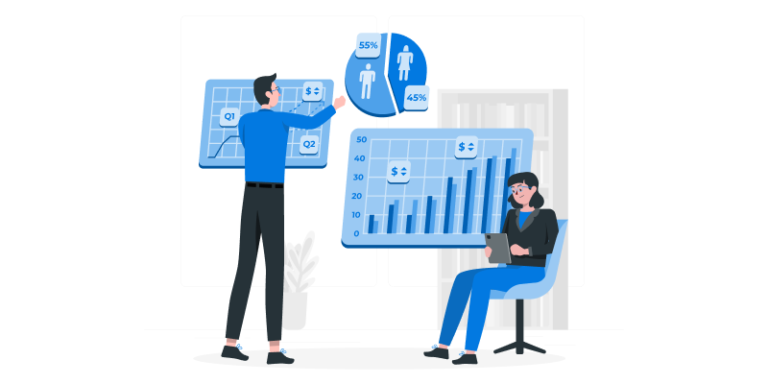Introduction
Personalizing customer interactions has become a cornerstone of successful business strategies in today’s competitive landscape. By leveraging Customer Relationship Management (CRM) data, companies can tailor their marketing efforts, enhance customer experiences, and foster long-term loyalty. This article explores how to effectively utilize CRM data for personalized marketing, offering insights into strategies, benefits, and best practices.
Understanding CRM Personalization
CRM personalization involves using data collected within a CRM system to customize interactions with customers. This data includes purchase history, preferences, demographics, and engagement patterns. By analyzing this information, businesses can create targeted marketing campaigns, offer relevant product recommendations, and provide individualized customer support. The goal is to make each customer feel valued and understood, thereby enhancing their overall experience with the brand.
Benefits of Using CRM for Personalized Marketing
Implementing CRM personalization strategies offers several advantages:
- Enhanced Customer Engagement: Tailored communications resonate more with customers, leading to increased interaction and responsiveness.
- Improved Customer Satisfaction: Addressing individual needs and preferences demonstrates attentiveness, fostering a positive perception of the brand.
- Increased Conversion Rates: Personalized offers and recommendations are more likely to result in purchases, boosting sales figures.
- Strengthened Customer Loyalty: Consistently relevant interactions encourage repeat business and long-term relationships.
- Optimized Marketing Efforts: Targeted campaigns reduce wasted resources and focus efforts on high-potential segments.
Strategies for Personalizing Customer Interactions Using CRM Data

1. Segmenting Your Customer Base
Effective personalization begins with segmentation. By dividing your customer base into distinct groups based on criteria such as demographics, purchasing behavior, or engagement levels, you can tailor your marketing efforts to address the specific needs and preferences of each segment. For instance, offering exclusive promotions to frequent buyers can enhance their loyalty, while providing educational content to new customers can help them better understand your products or services.
2. Crafting Personalized Email Campaigns
Email marketing remains a powerful tool, and personalization can significantly increase its effectiveness. Utilize CRM data to include the recipient’s name, recommend products based on past purchases, or send birthday greetings with special offers. These personalized touches can make your emails more engaging and relevant, leading to higher open and conversion rates.
3. Customizing Website Experiences
Your website can serve as a dynamic platform for personalization. By analyzing CRM data, you can display content, product recommendations, and promotions tailored to individual visitors. For example, returning customers might see suggestions based on their previous browsing or purchase history, creating a more intuitive and satisfying shopping experience.
4. Implementing Targeted Loyalty Programs
Loyalty programs can be enhanced through personalization by offering rewards that align with individual customer preferences and behaviors. CRM data allows you to identify which products or services a customer favors, enabling you to design incentives that are more appealing and likely to encourage repeat business.
5. Utilizing Dynamic Content in Marketing Materials
Incorporating dynamic content that adjusts based on the recipient’s profile can make your marketing materials more relevant and engaging. This approach can be applied across various channels, including emails, landing pages, and digital advertisements, ensuring that each customer receives content that resonates with their interests and needs.
Best Practices for CRM Data Utilization
To maximize the effectiveness of CRM personalization, consider the following best practices:
- Ensure Data Accuracy: Regularly update and cleanse your CRM data to maintain its reliability. Inaccurate or outdated information can lead to misguided personalization efforts.
- Respect Customer Privacy: Be transparent about data collection practices and provide customers with control over their information. Adhering to privacy regulations and ethical standards builds trust and credibility.
- Integrate Across Channels: Ensure that personalization efforts are consistent across all customer touchpoints, including email, social media, and in-store interactions. A unified approach reinforces the personalized experience.
- Monitor and Analyze Performance: Continuously assess the impact of your personalization strategies using key performance indicators (KPIs). This analysis can help identify successful tactics and areas needing improvement.
- Invest in Training and Tools: Equip your team with the necessary skills and technologies to effectively implement and manage personalization initiatives. Ongoing education and the right tools are critical for success.
Challenges and Considerations

While CRM personalization offers numerous benefits, it’s important to be mindful of potential challenges:
- Data Overload: Managing and analyzing large volumes of data can be overwhelming. Focus on collecting relevant information and utilize tools that can efficiently process and interpret data.
- Balancing Personalization and Privacy: Strive to personalize interactions without infringing on customer privacy. Always obtain consent for data usage and be transparent about how information is utilized.
- Resource Allocation: Implementing personalization strategies requires investment in technology and personnel. Ensure that your organization is prepared to allocate the necessary resources.
Conclusion
Leveraging CRM data for personalized customer interactions is a powerful strategy that can lead to enhanced customer satisfaction, increased loyalty, and improved business performance. By effectively segmenting your audience, crafting tailored marketing efforts, and adhering to best practices, your organization can create meaningful and engaging experiences that resonate with customers. As technology and customer expectations evolve, staying committed to personalization will be key to maintaining a competitive edge in the marketplace.




